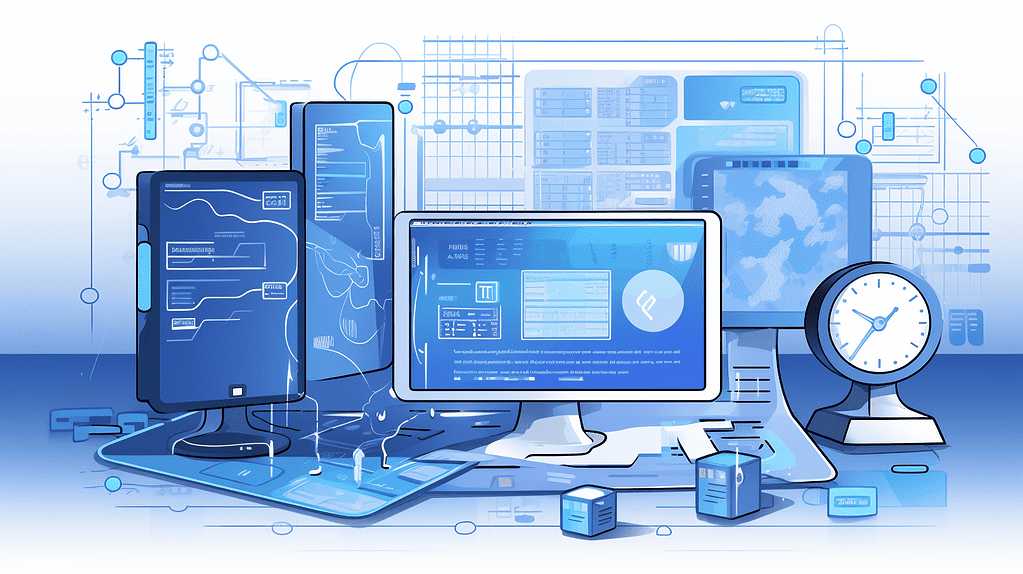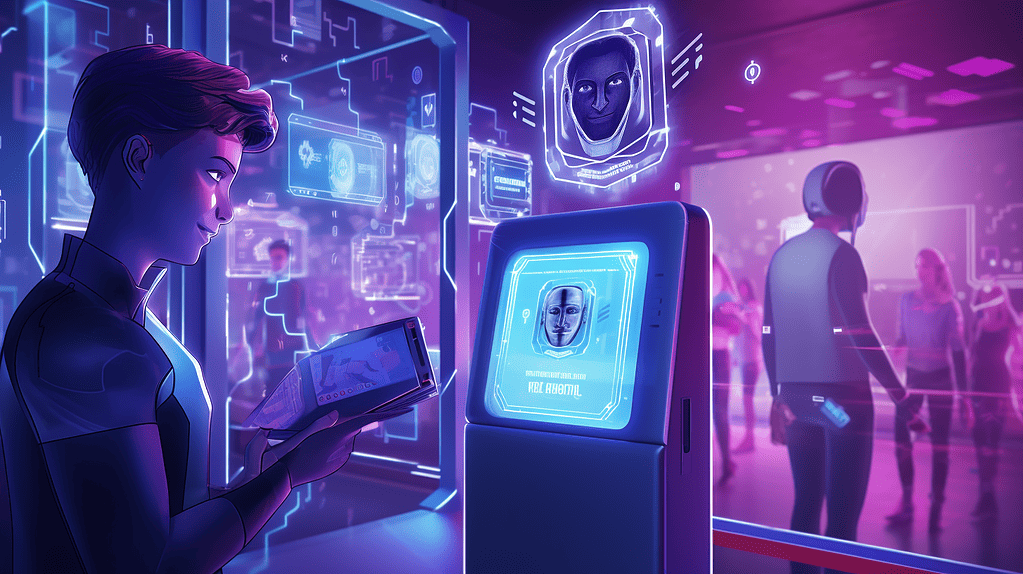76 Best Software Engineer Skills to Learn in 2023: Level Up Your Career

Are you a budding software engineer eager to make your mark, or perhaps a veteran looking to elevate your career to unprecedented heights? In the ever-evolving tech landscape, standing still is not an option.
With over two decades of firsthand experience climbing the ranks from a fresh university graduate to holding esteemed positions such as Chief Software Architect and CTO, I know how fast our industry evolves. Moving forward and staying at the top is more challenging than ever before.
Imagine yourself being fully equipped with top software engineer skills, a tailored toolkit designed not just to meet the demands of the present but to catapult you into the future.
That’s why I’ve curated this list. It lists the top software engineering skills needed to level up your career. We’ll dive into technical and soft skills so you can choose the right mix for your desired career path and personal strengths and weaknesses.
If you’re looking to kickstart a successful career in software engineering or take on a more senior role, this guide is essential for achieving your goals. It will help you stay up-to-date with the latest industry trends while also enabling you to drive progress in your career.
Take the time to explore this comprehensive guide and take the next step toward achieving your ambitions!
Key Takeaways
- Core software development skills are essential, including a strong understanding of programming languages, data structures, algorithms, problem-solving, and software testing.
- Web, mobile, and application development require proficiency in various programming languages, problem-solving skills for debugging and improving software systems, and a willingness to learn new skills for career growth.
- Infrastructure, systems, and DevOps skills involve effective communication, mastery of software testing and debugging, prioritizing effective solutions, collaboration, and strategic thinking.
- Data management, analysis, and AI skills include organizing and interpreting large amounts of data, using SQL and Python for data management and analysis, applying AI solutions to real-world problems, and creating efficient software solutions using data.
- Soft skills can be a game changer in your career’s trajectory, as communication is vital to various aspects of a software engineering career. It’s all about listening, understanding, and conveying ideas effectively.
What Are the Top Software Engineering Skills to Learn in 2023?
In today’s tech-driven world, mastering specific software engineering skills can significantly level up your career.
While the core principles remain consistent, the tools, languages, frameworks, and paradigms shift and transform as technology progresses. Every year, new trends emerge, and some fade away.
Today, the spectrum of abilities required of a software engineer is more diverse than ever, covering everything from fundamental programming concepts to personal branding. Whether you’re a budding developer, a seasoned engineer, or somewhere in between, leveling up in these areas will undeniably propel your career to new heights.
Dive in and explore what the future holds for you.
1. Fundamental Programming Concepts

Mastering fundamental programming concepts is essential. It’s the building block of any successful software engineering career. I’ve found that understanding the basics of a programming language sets the foundation for more complex problem-solving. Variables, data types, control structures, syntax, and semantics are some of the core concepts that every programmer should know.
The ability to read and write code is just the beginning. I’ve learned that knowing how to debug, test, and maintain code is just as crucial. I’ve also found that understanding data structures and algorithms helps write efficient code.
Mastering these fundamental concepts has helped me adapt to different programming languages quickly. It enhanced my problem-solving skills and made me a better software developer.
2. Data Structures
Data structures aren’t just about storing data; they’re also about organizing and managing it in a way that’s efficient and easy to understand. Understanding data structures is one of the hard skills required for a software developer.
Data structures facilitate efficient problem-solving within software systems. They’re crucial in software development, particularly in complex, multi-layered systems. Arrays, Lists, Stacks, Queues, Trees, Graphs, Hash Maps, Sets, and Linked Lists – A career in software development demands a solid grasp of these structures.
Software engineers must understand and apply data structures effectively, from open-source software to proprietary systems. It’s one of the technical skills needed to excel in a software development career.
3. Algorithm Design & Analysis
As a software developer, algorithm design and analysis is another important skill I must focus on. This core skill allows me to create efficient, reliable software.
Knowing your algorithms well can also significantly help in job interviews, where algorithm-type questions are often key screening factors. Sorting algorithms, search algorithms, recursion, and divide and conquer – these are all areas you should brush up on.
This skill is an absolute must for any aspiring software developer.
4. Object-Oriented Design
In programming, there’s nothing quite like object-oriented design for organizing complex systems. This approach is about structuring software as a collection of objects, each encapsulating data and the procedures that act on this data.
I’ve found that it’s an essential skill for any software engineer, aiding in creating scalable, maintainable code that can quickly adapt to changing requirements. It’s not just about grasping the four fundamental principles of object-oriented design: encapsulation, inheritance, polymorphism, and abstraction. It’s also about knowing when and how to apply them effectively.
Mastering object-oriented design means I can build software that’s not only functional but also efficient, robust, and easy to understand. This skill is undeniably a must-have for leveling up your career.
5. Functional Programming
You’ll find that mastering functional programming can be a game changer. It’s a paradigm that treats computation as evaluating mathematical functions and avoids changing-state and mutable data. This approach leads to more accessible code to understand, test, and debug.
By embracing functional programming, you’re adding a vital tool to your programming skills arsenal. It’s not just about writing code but doing so in an efficient, scalable way and reducing potential errors.
Not only does it enhance your programming skills, but it also gives you an edge in the ever-competitive tech industry.
6. Scripting Languages

Mastering scripting languages like Bash, Python, or JavaScript can significantly ease your daily tasks, as they’re designed to automate the execution of tasks, which could be executed one by one by a human operator.
Python is particularly noted for its readability and simplicity, making it a great introduction to programming. It’s often used for web development, data analysis, AI, and more.
Conversely, JavaScript is the backbone of modern web applications, enabling interactivity and complex functionalities. It’s also versatile, being used for both frontend and backend development.
Bash is the tool of choice for Linux programming and automation. No DevOps or CI/CD pipeline is complete without a mean-looking bash script that automates something that would take ages to perform manually.
Ultimately, these scripting languages are indispensable skills for a software engineer.
7. Compiled Languages
Proficiency in compiled languages is a must-have. Unlike scripting languages, interpreted at runtime, compiled languages are converted into machine code before execution. This feature makes them faster and more efficient. They’re also strongly typed, which can help catch errors at compile time rather than runtime.
Some well-known compiled languages include C++, Java, C#, and Rust. Mastering them will improve your ability to write efficient, error-free code.
In short, leveraging the power of compiled languages can significantly boost your software development skills and, in turn, your career.
8. Declarative Languages
In contrast to imperative languages, which require step-by-step procedures, declarative ones are about describing the desired result. This makes them a good fit for database querying, for example, where you want to specify what data you need, not how to fetch it.
Software programs written in declarative languages, like SQL or specially crafted DSLs, are easier to understand and debug since they express logic without unnecessary details. They’re also highly efficient for parallel computing, as they eliminate side effects.
However, their abstraction can make them less flexible for specific tasks. Mastering declarative and imperative languages could sometimes give you the extra edge you need to develop software efficiently.
9. Version Control
In today’s tech world, having a good grasp of version control is essential. It’s a crucial part of my technical skills and a vital tool for any software engineer.
Version control systems like Git allow you to track and manage changes to your code, facilitating collaboration and preventing data loss. You can revert to previous versions, compare differences, and isolate issues.
It’s not just about keeping a history of your modifications – it’s about understanding the evolution of your project, maintaining a smooth software development process, and efficient collaboration with your peers.
It’s clear that mastering version control isn’t optional; it’s a necessity. A thorough understanding of version control is a significant asset in your software engineering career.
10. Build Tools

Build tools are instrumental in automating routine tasks, compiling source code into executable code, and managing dependencies. They’re essential for any software development project, ensuring the code’s stability and improving the efficiency of the development process.
Mastering tools like Gradle, Maven, and Ant can drastically streamline the build process. They’re not just about compiling the code; they also manage libraries and dependencies, run automated tests, and generate documentation. These tools help you organize your project, reduce bugs, and deliver a better final product.
I’ve learned that efficiently using build tools can significantly improve my productivity, making them an essential skill for any software engineer.
11. Continuous Integration & Continuous Delivery (CI/CD)
Gone are the days of “It works on my machine” excuses or nightmare deployment weekends that everyone dreaded. With Continuous Integration and Continuous Delivery (CI/CD), you’re automating the build and deployment process, catching issues early, and making deployments a non-event. It’s like having an extra set of eyes and hands that are tirelessly working to ensure that your code integrates seamlessly, tests are passing, and everything gets where it needs to go safely and efficiently.
Learning CI/CD makes you a more valuable asset to your team and gets you in sync with the DevOps culture, which is all about speed, automation, and reliability. Trust me, once you go CI/CD, there’s no turning back—it’s a career game-changer.
Understanding the principles of CI/CD is essential. It’ll allow you to frequently merge code changes, automate testing, and ensure that you can release updates faster and more reliably as you steer your software development project to completion.
12. Unit Testing
Unit testing is an essential aspect of coding. It allows you to verify each part of your code individually to ensure it’s working correctly.
Unit testing is a component of software testing and debugging. It examines the most minor parts of a system, like functions or procedures, to ensure that they perform as expected. You can identify and fix bugs early in the development process by implementing unit tests. This saves time and resources later on.
Unit testing also provides a sort of documentation. It makes it easier for you and other engineers to understand the code.
Unit testing is a valuable tool in searching for high-quality, reliable software.
13. Code Review Practices

In today’s competitive tech industry, it’s vital to adopt effective code review practices to ensure the quality and efficiency of your work.
We all like to think we’re the Da Vinci of coding, churning out flawless art every time we hit that keyboard. But let’s be honest – mistakes happen.
And it’s not just about catching bugs. A solid code review is also about ensuring that the code aligns well with project architecture, follows coding standards, and is, for lack of a better word, ‘elegant.’
Remember, you’re not just writing code for machines to understand; your teammates must also get it. It’s about making sure that the code can be maintained and understood months, even years down the line. Code reviews allow us to learn from each other, share knowledge, and build a collective sense of ownership and accountability.
It’s professional growth, team building, and quality assurance all rolled into one. Make code reviews a habit, and you’ll be a better engineer and a cherished team member.
14. Generative AI Tools
Generative AI Tools are becoming a game-changer. Why? Because they’re reshaping how we approach problem-solving and product development. ChatGPT, GitHub Copilot, and Google Bard are just a few of the rising stars in this area.
Imagine you’ve got a project that requires authoring a lot of boilerplate code. Instead of manually hammering out every detail, you can use Generative AI to automate a significant chunk of that work. These tools could save you hours, days, or even weeks of effort, allowing you to focus on the parts of the project that require your expertise.
And it’s not just about being efficient; it’s about being effective. With AI doing some of the heavy lifting, you can bring more innovative solutions, tackle complex problems, and deliver more value to your company.
Understanding the capabilities and limitations of Generative AI isn’t just a “nice-to-have” anymore; it’s quickly becoming a “must-have” skill for any forward-thinking software engineer.
15. HTML, CSS & JavaScript
You might think HTML, CSS, and JavaScript are the “basics” you can overlook, especially if you’re diving into machine learning algorithms or setting up complex back-end services.
But let me tell you, they’re foundational for a reason. I’ve been in this industry for many years, and I’ve seen brilliant engineers stumble because they didn’t understand how their code materialized in a browser. It’s like being a master chef but not knowing how to set the table properly.
HTML is the structure of your digital world, CSS makes it look presentable, and JavaScript adds interactive magic. Whether you’re building full-fledged web applications, single-page apps, or even mobile apps with web-based views, these technologies come into play. And let’s not forget many emerging technologies like WebAssembly still lean on these foundational languages for interoperability.
So please don’t skip the basics; they’re your bread and butter in software development.
16. Web Front-End Frameworks
Diving deeper into web development, let’s focus on front-end frameworks. These tools help us streamline our code and build robust websites more efficiently. Mastering these frameworks is crucial for efficiency and productivity.
Some top front-end frameworks include React, Angular, and Vue.js. React, developed by Facebook, is a JavaScript library for building user interfaces. Angular, on the other hand, is a TypeScript-based open-source framework developed by Google. Lastly, Vue.js is an open-source JavaScript framework for building user interfaces.
Each has strengths and weaknesses, and choosing the right one depends on the project requirements. Understanding these frameworks is critical to leveling up your career.
17. Server Side Rendering (SSR)
Having explored web front-end frameworks, it’s crucial to note another significant area in the web development realm: Server Side Rendering (SSR).
SSR is a technique that can improve a website’s performance and make it more SEO-friendly. It’s about rendering a client-side or universal app to a static HTML string on the server and then sending it to the client. This process speeds up the initial page load because the browser can display the HTML as soon as it’s received.
Mastering SSR enhances your web development prowess and gives you an edge in creating optimized, high-performance websites.
18. Web Back-End Frameworks
You’ll find that understanding web back-end frameworks can significantly enhance the functionality and efficiency of your websites. They provide a structured way to build and manage web applications, making handling HTTP requests and database operations easier.
Mastering these frameworks is crucial. They provide robust software solutions for end users, improving their overall experience. Django, Express, and Laravel are some popular back-end frameworks. They offer built-in tools and libraries to streamline the development process.
These frameworks have significantly reduced my time and effort to build complex applications. I’m continually improving my skills and staying relevant in the ever-evolving tech industry by focusing on these.
19. RESTful API Design

In exploring RESTful API design, you’ll find it’s a key component in developing interactive web applications that are scalable, efficient, and easy to maintain. It’s a set of rules that developers follow when creating APIs for their software applications.
The elegance of RESTful API lies in its simplicity; it uses HTTP methods explicitly and in a way consistent with the protocol definition. This standardization makes it easier for users to understand and use the API. It’s stateless, meaning each call can be made independently of others, increasing reliability and scalability.
20. WebSockets
WebSockets provide a persistent connection between a client and a server, allowing for real-time data flow. Understanding and leveraging this technology is crucial. With it, you can create interactive and dynamic experiences for users, something that’s increasingly in demand in today’s fast-paced digital world.
Comprehending the workings of WebSockets isn’t just about knowing how to establish a connection. It’s also about understanding how to handle messages, deal with errors, and close connections gracefully. It’s a tool with profound impacts on the efficiency and responsiveness of applications.
21. WebAssembly (WASM)
WebAssembly, often abbreviated as WASM, is a binary instruction format that allows you to run code at near-native speed in the web browser. This makes it a skill that’s becoming increasingly critical for software engineers.
WASM enables high-performance applications on web pages. It’s safe and efficient, making it a powerful tool for building faster, more efficient applications. Learning WASM will allow you to write code in multiple languages, not just JavaScript, broadening your coding horizons.
Adopting WASM by significant browsers like Chrome, Firefox, and Safari signals its importance. It’s a tool that can help programmers to build faster, more efficient applications.
22. Android Development

You’re sure to find Android development an essential area of expertise, as it’s the most popular mobile operating system worldwide.
You’ll work with Java and Kotlin, the main languages for Android development. Understanding Android SDK and Android Studio, the official IDE for Android development, is crucial.
You’ll also need to master XML for UI layouts and SQLite for data storage. Knowledge of cross-platform tools like Flutter can be a bonus. A firm grasp of material design, the official Android design language, is also critical.
23. iOS Development
iOS development is all about creating apps for Apple’s iOS devices. You’ll need to get comfortable with Swift, Apple’s programming language, and Xcode, their integrated development environment. Understanding the iOS Human Interface Guidelines is also essential. It’ll allow you to create intuitive and user-friendly apps.
Additionally, you’ll need to master the Core Data framework for efficient data management. In today’s tech landscape, having proficiency in iOS development can significantly level up your career as a software engineer. So, it’s certainly a skill worth investing your time in.
24. Cross-Platform UI Development
Cross-platform UI development is where you’ll design user interfaces compatible with multiple operating systems. Here, mastering the skills for software like React Native, Xamarin, and Flutter is critical. These tools enable seamless UI creation, which functions efficiently across platforms.
A solid understanding of JavaScript is essential for React Native, while C# is pivotal for Xamarin. For Flutter, you’ll need to be proficient in Dart. Efficiency in coding and debugging, with a knack for creating intuitive, user-friendly interfaces, is crucial.
Additionally, understanding the nuances of different operating systems and devices is vital to ensure optimal UI performance. Cross-platform UI development is a valuable skill for a well-rounded software engineer.
25. Structured Query Language (SQL)
Diving into Structured Query Language (SQL), it’s crucial to grasp its importance in managing and manipulating databases. This language is the backbone of many major systems, from web services to data warehouses. Unsurprisingly, SQL skills are the technical cornerstone for any aspiring software engineer.
Understanding SQL means you can create, modify, and extract data from a relational database, manage database structures, and design complex queries. It’s all about storing, retrieving, and manipulating data efficiently. Despite the advent of NoSQL databases, SQL’s relevance remains strong, as it’s universally used across the tech industry, even in some modern NoSQL databases.
26. Relational Database Design

Having explored SQL, I can’t overstate its importance. Yet, it’s not just about querying data; understanding how it is structured is equally crucial. That’s where Relational Database Design comes in.
Mastering the art of designing robust, scalable databases demands a strategic mindset, the ability to visualize complex structures, and keen attention to detail. You must predict potential issues before they occur, ensuring data integrity and efficient performance.
With data becoming even more central to our digital world, excelling in Relational Database Design will give any software engineer an edge. It’s a skill worth investing in.
27. ACID vs. BASE Principles
You’ll find that understanding the differences between ACID and BASE principles can enhance your database design approach. ACID (Atomicity, Consistency, Isolation, Durability) principles ensure reliable transactions, especially in a multi-user environment. On the other hand, BASE (Basically Available, Soft state, Eventually consistent) principles prioritize availability and flexibility, sacrificing immediate consistency.
For high-volume, distributed systems, you’ll lean towards BASE. However, you’ll opt for ACID for systems requiring strong data integrity, like banks. Grasping these two principles will undoubtedly add depth to your software engineering expertise, allowing you to design robust database systems.
28. NoSQL Databases
NoSQL databases are designed to handle semi-structured or unstructured data and are an excellent fit for applications requiring real-time data processing. I often work with these databases due to their flexibility and speed.
They’re not bound by the rigid schemas that traditional SQL databases have, which allows me to store diverse data types more efficiently. Software engineers typically work with vast amounts of unstructured data in today’s big data environment, and NoSQL databases are a game-changer. They support horizontal scaling, which is invaluable when dealing with large datasets.
Using NoSQL databases effectively can significantly enhance a software engineer’s skill set and open up new opportunities in the ever-evolving tech industry.
29. Distributed Databases
In the early days, a single database instance often did the trick. But as applications grow in complexity and user base, a monolithic database won’t cut it anymore. That’s where distributed databases come into play.
They break down the data across multiple servers or different geographic locations. This makes your system more resilient, fault-tolerant, and scalable.
Learning about distributed databases gives you a leg up when designing systems that can handle real-world demands. Secondly, understanding the mechanics of data distribution, partitioning, and replication strategies can save your bacon when troubleshooting performance bottlenecks.
It’s not just a nice-to-have skill; it’s becoming essential, mainly if you aim to work on large-scale systems. So, understanding distributed databases should be on your radar if you want to stay relevant and keep your skillset on the cutting edge.
30. Graph Databases

Graph databases are a type of NoSQL database that’s particularly effective for dealing with interconnected data. They’re designed to handle complex software where relationships are as meaningful as the data itself. Unlike traditional relational databases, graph databases store connections as first-class entities, making them ideal for modeling relationships and networks.
Graph databases are optimal for querying interconnected data, leading to faster, more efficient operations. This can drastically improve performance, especially when working with complex software systems. Additionally, they can simplify your data model, making it more intuitive and easier to work with.
31. Time-Series Databases
Not all data is created equal; some is time-sensitive, like stock prices, sensor data, and user analytics. That’s where Time-Series Databases come in. Unlike traditional databases, these are optimized to efficiently store and query data that changes over time.
So, if you’re working on anything related to IoT, finance, or complex analytics, you’ll love how much easier and more efficient your life becomes with a Time-Series Database. If you want to stay ahead of the curve and understand how to manage real-world data scenarios, you can’t afford to skip this one.
32. Full-text Search
Moving on from the importance of understanding Time-Series Databases, another critical skill is mastering Full-text Search. This skill is essential when dealing with large databases.
Full-text Search allows finding specific content within a database, saving time and resources. It’s not just about keyword search; it’s about understanding the information’s context, semantics, and relevance.
The ability to implement Full-text Search efficiently can significantly enhance the user experience, making your software more intuitive and user-friendly. Sharpening your skills in Full-text Search can make you a valuable asset to your team and company.
33. Indexing & Query Optimization
After mastering Full-text Search, you must dive into Indexing and Query Optimization. This skill is pivotal in improving the speed and efficiency of your database queries, a crucial aspect of software engineers’ work.
Indexing organizes data for faster search, while query optimization ensures your SQL queries run efficiently. It’s like sorting a bookshelf alphabetically to find a book faster and reading only the necessary chapters instead of the whole book.
Your software can underperform or crash under heavy loads without proper indexing and query optimization. So, it’s not a skill to overlook.
34. Cloud Computing

Knowing Cloud Computing inside and out is non-negotiable, and here’s why: it’s the basis of modern software engineering. Period.
Gone are the days when you had to worry about physical hardware constraints; the cloud lifts those barriers. Being savvy with cloud platforms like AWS, Azure, or GCP equips you to build, deploy, and scale applications with a speed and efficiency that was unthinkable just a few years ago.
You’re saving time and tapping into a universe of services and tools that can give your project a tremendous edge. In other words, cloud expertise allows you to focus on creating standout features and innovations rather than getting bogged down with infrastructure woes.
If you’re serious about your career in software engineering, mastering cloud computing is not optional; it’s essential.
35. DevOps
In the tech world, there’s an increasing emphasis on DevOps. It’s reshaping how companies develop and deliver software products. Understanding DevOps principles is incredibly beneficial. This methodology bridges the gap between development and operations teams, fostering improved collaboration and productivity.
Knowing DevOps means you understand the entire lifecycle of a software application—from writing the first line of code to deploying it on a cluster of servers and then monitoring its performance.
It’s about breaking down silos and fostering a culture of collaboration and shared responsibility. And let’s not forget the tech part. Mastering tools like Docker, Kubernetes, Jenkins, and Terraform can make you indispensable.
So, don’t skip this one if you want to level up. Trust me, you’ll thank yourself later.
36. Containerization
Containerization has become a crucial part of DevOps practices. It allows for greater efficiency and consistency across different computing environments. As a good software engineer, it’s my responsibility to ensure that apps run reliably when moved from one computing environment to another. This is where containerization comes in handy.
A container includes an application and all its related configuration files, libraries, and dependencies required for it to run. This ensures that the application will run on any other Linux machine, regardless of any customized settings that the machine might have.
Docker is a popular tool for automating application deployment, scaling, and container management. Learning this tool can significantly level up your career as a software engineer.
37. Container Orchestration

You’re probably wondering what comes next after containerization, and that’s where container orchestration steps in. I find orchestration invaluable. It’s the automated configuration and management of systems. It’s like a conductor directing an orchestra, ensuring all instruments play harmoniously.
Orchestration allows you to test and debug software and scale it in production efficiently. It eliminates manual processes, drastically reducing the possibility of human error. It offers a bird’s eye view of all processes, making pinpointing and rectifying issues easier.
Kubernetes and Elastic Container Services (ECS) are some of the popular services in this area.
38. Infrastructure as Code (IaC)
Infrastructure as Code (IaC) is another pivotal tool reshaping how we manage and provision tech systems. In essence, it’s where infrastructure configurations become software, allowing for automated and repeatable processes. You can code server and network configurations rather than manually setting them up, making the entire system more efficient and reliable.
IaC is also integral for cloud computing. It means you can manage and provision thousands of servers simultaneously. Using IaC, you can ensure consistency across environments, reduce the potential for human error, and dramatically speed up deployment times.
39. Monitoring & Logging
Monitoring and logging are an integral part of maintaining and optimizing better software.
Think of these tools as your ever-watchful eyes and ears on your software, 24/7. When something goes awry – and, honestly, something always does – you won’t be blindly sifting through thousands of lines of code.
You’ll have logs to pinpoint exactly what went south and monitoring systems to alert you even before your users notice something’s off. It’s all about being proactive rather than reactive.
Without proper monitoring, you’re flying blind; without logging, you’re trying to solve a mystery without any clues. Master these skills, and not only will you make your life a lot easier, but you’ll also become the go-to problem solver on your team. Trust me, that’s an excellent place to be.
40. DevSecOps
DevSecOps integrates security practices into the DevOps process. Mastering DevSecOps means not merely coding but ensuring the code’s security from inception to deployment. It’s about incorporating security checks and balances throughout the software development lifecycle.
This approach demands a good grasp of security concepts, tools, and strong interpersonal skills. Why? Because DevSecOps is all about collaboration. You’ll need to work closely with development, operations, and security teams, ensuring everyone’s on the same page.
When you understand DevSecOps, you’re not just cranking out features; you’re ensuring those features are robust, scalable, and, most importantly, secure. It’s about building quality into the product at every step.
It’s a way to minimize risks, fix vulnerabilities faster, and even get a leg up in your career. Being an engineer who knows how to build great software and secure it is a powerful combo that’ll make you incredibly valuable to any team.
41. FinOps

Today, every line of code you commit could translate to dollars and cents, thanks to the pay-as-you-go nature of cloud services. I’ve seen teams spin up resources in the cloud like there’s no tomorrow, only to get a jaw-dropping bill at the end of the month.
That’s where FinOps comes into play. Understanding FinOps, short for Financial Operations, helps you make smarter decisions about resource allocation, cost optimization, and how to get the best bang for your buck in the cloud. It’s like being the CFO of your little software world.
People take notice when you can discuss cost-efficiency, performance, and scalability during team meetings. Your managers will love you for it; it sets you apart as a well-rounded engineer. So don’t underestimate the power of knowing your FinOps!
42. Systems Programming
In systems programming, you’re responsible for creating and maintaining the system’s software that’ll run all other software. You might be tasked with developing operating systems, databases, or real-time systems.
This requires a deep understanding of both hardware and software interactions. You’ll need to be proficient in languages like C or C++, as these allow for direct manipulation of hardware resources. It’s also crucial to understand concurrency, memory management, and how to optimize for performance.
Being a systems programmer isn’t for everyone; it’s complex and challenging. But if you enjoy getting under the hood and tinkering with the inner workings of a system, it’s a gratifying and sought-after skill.
43. Embedded Systems
Understanding embedded systems can open up new arenas for you as a software engineer. Embedded systems are at the heart of every microcontroller, sensor, and smart device.
From smart thermostats to advanced automotive controls, they make the ‘intelligence’ in ‘artificial intelligence’ possible at the hardware level. It’s not just about coding; it’s about making software and hardware work harmoniously, often with limited resources.
This skill also broadens your problem-solving palette, as you’ll encounter challenges distinct from traditional software development—like real-time processing and power management. And let’s not forget the demand for engineers proficient in embedded systems is continually rising. So, if you’ve got your eye on the long game, mastering embedded systems is a career move you won’t regret.
44. Agile Methodologies
Shifting gears to Agile Methodologies, you’ll find it’s a set of methodologies that promote flexibility and collaboration among team members. It’s not just about knowing how to code; it’s also about being able to work as a unit towards a shared goal.
In an Agile environment, you deliver smaller, usable portions of the software at the end of every sprint. Scrum, a subset of Agile, provides a framework for managing and controlling iterative work at the project level. It’s a highly sought-after skill as it optimizes productivity and adapts to changes swiftly.
45. Test-Driven Development (TDD)

Test-Driven Development (TDD) is another crucial competency. It forces you to think before you code. In TDD, you write a test outlining what you want your code to achieve, then write code satisfying that test. Simple, yet incredibly powerful.
It requires you to write tests before beginning the coding process. TDD lets you write cleaner, more efficient code, reducing the time spent on debugging. It’s a method that guarantees quality assurance from the onset, a crucial aspect in today’s agile software development cycles.
Understanding and applying TDD isn’t just about writing tests. It’s about improving software design. In addition, it also saves countless hours in debugging.
46. Behavior-Driven Development (BDD)
In a similar vein, Behavior-Driven Development (BDD) is another essential competency that’s gaining momentum in the tech industry. BDD helps bridge that often confusing gap between developers and stakeholders. It turns user stories and business requirements into actual tests immediately.
But it’s not just about turning requirements into code. BDD creates a shared language everyone can understand – developers, QA, product managers, and business stakeholders. This makes collaboration so much easier. The devs write code that’s easier to test, and QA knows precisely what they’re testing against. It’s a win-win.
Your code becomes more maintainable and flexible, making it easier to adapt when business needs change, which will happen sooner rather than later. The tests become a form of documentation, so any new engineer jumping into the project quickly understands how things should work.
47. Secure Coding
In an era where cybersecurity threats are escalating, software engineers must master secure coding. It’s not just about developing functional software anymore; it’s also about ensuring its safety.
You might build the most feature-rich, scalable, and user-friendly application out there, but if it’s not secure, you invite hackers to a buffet. Think of secure coding as the foundation of a house. No matter how pretty the house looks, everything could come crashing down if the foundation is shaky.
So, understanding OWASP best practices, input validation, secure data storage, and how to write code resistant to common vulnerabilities like SQL injection or XSS attacks should be on your radar. It makes you a more well-rounded engineer and a trustworthy guardian of your users’ data.
48. Authentication & Authorization

Authentication is the process of verifying a user’s identity. It’s like a bouncer checking your ID at a club. You’re not getting in if you’re not who you say you are.
Authorization, conversely, determines what you can do once you’re inside. It’s akin to the club’s VIP list. If you’re on it, you can access exclusive areas. If you’re not, you’re restricted. In software terms, it defines a user’s privileges within a system.
In a nutshell, while authentication asks ‘Who are you?’, authorization asks ‘What are you allowed to do?’.
Being proficient in modern authentication and authorization methods will allow you to build systems that can adapt to emerging security challenges. It’s not just about knowing how to implement OAuth or JWT tokens; it’s about understanding the underlying principles that can be applied no matter the tech stack.
49. Encryption & Cryptography
Encryption is converting data into a code to prevent unauthorized access. Cryptography is the practice and study of secure communication techniques in the presence of third parties.
When you know how to encrypt data and implement secure communication protocols, you’re not just writing code but building trust. Whether it’s customer passwords, financial information, or any other sensitive data, you often hold the kingdom’s keys.
Mess up encryption, and you’re risking your company and your users.
50. Web Application Firewalls (WAF)
Understanding web application firewalls is necessary, as they protect your web applications from malicious attacks. I’ve seen how these systems scrutinize incoming traffic, blocking suspicious activity.
Web application firewalls, or WAFs, can be network-based, host-based, or cloud-based. They’re designed to protect web applications by filtering and monitoring HTTP traffic between them and the Internet. Understanding how these firewalls work and how they can be configured to provide maximum security is essential.
Moreover, knowing how to implement WAFs correctly can save your organization from costly breaches and is a skill worth investing time in.
51. Computer Networking
It’s fundamental to grasp how data travels from one computer to another over the internet or within a network. It would be best to understand the basics of IP addresses, TCP/UDP, DNS, HTTP/HTTPS, and more.
Your application doesn’t exist in isolation. It’s communicating constantly, whether with databases, other services, or external APIs. And all of that communication happens over a network. If you don’t get how networks function, you’re flying blind.
Have you ever had to debug a latency issue? Or figure out why a service is unreachable? Or maybe you’ve wrestled with a cloud architecture that doesn’t seem to let data flow as intended.
These are all scenarios where a solid grasp of networking principles can be your best friend. A little networking knowledge will save you a lot of headaches in the long run and make you a more competent, effective engineer.
52. Design Patterns
Design Patterns are like the blueprints for solving recurring challenges in software design.
I can’t emphasize enough how invaluable design patterns have been in improving the quality of the software I’ve worked on. Understanding design patterns will help you write cleaner, more maintainable code and speed up the development process because you’re not reinventing the wheel every time a common problem surfaces.
You’ll spend less time debugging and more time adding features, and who doesn’t want that? So yeah, if you’re serious about elevating your engineering skills, mastering design patterns is non-negotiable.
53. Monolithic vs. Distributed Architectures

In system architecture, it’s essential to understand the difference between monolithic and distributed structures.
A monolithic architecture is a traditional unified model where all components reside within one system. It’s simple to develop, deploy, and test, but it can be challenging to scale and maintain.
On the other hand, a distributed architecture, such as Microservices, breaks down the system into independent services, allowing for better scalability and flexibility. However, it’s more complex to design and manage.
As a software engineer, evaluating the project’s needs is crucial before selecting an architecture. Understanding the advantages and disadvantages of each will enable you to make informed decisions, potentially improving the overall productivity and success of your projects.
54. Domain-Driven Design
You’ll find that Domain-Driven Design (DDD) is a valuable approach for complex systems, focusing on the core domain and its logic rather than the technology used. It’s a strategic tool for designing high-quality software. DDD’s strength is its emphasis on collaboration and communication among domain experts and developers.
I’ve found that DDD’s real-world modeling facilitates a deep understanding of the business, making it easier to solve problems and anticipate future needs. It allows me to create flexible, scalable software that’s easier to maintain and evolve.
However, DDD isn’t always the best choice. It’s complex and time-consuming, making it unsuitable for simple applications. But for complex systems, it’s an invaluable skill. Mastering DDD can undoubtedly elevate your career to new heights.
55. Event-Driven Architecture (EDA)
Event-driven architecture (EDA) is another crucial concept making waves in the tech industry. EDA is a design paradigm where the flow of the program is determined by events such as user actions, sensor outputs, or messages from other services. It’s about reacting to changes in state, typically using asynchronous callbacks.
In an EDA, I can develop adaptive, responsive, and scalable systems. It’s particularly effective for applications where real-time updates and high responsiveness are crucial. I’ve found it’s particularly good for designing modern, agile applications that need to adapt quickly to changing conditions.
Mastering EDA is becoming a must-have skill for software engineers. Technologies like RabbitMQ and Apache Kafka are popular tools for implementing EDA, and you should get to grips with them.
56. Serverless Architectures
Serverless architectures are gaining traction for their cost-effectiveness and operational simplicity. Instead of managing and operating servers, we can offload that responsibility to a cloud provider. This means we only pay for the computing time we consume, and there’s no charge when our code isn’t running.
But it’s not just about cost. Serverless architectures also streamline operational management. You don’t have to worry about system patching, capacity provisioning, or software maintenance. These tasks are all handled by the provider.
Despite these benefits, serverless isn’t a panacea. It has limitations, such as cold starts and vendor lock-in. However, with the proper use case, serverless can be a powerful tool in my software engineering arsenal.
57. Evolutionary Architectures

Evolutionary architectures are designed to be flexible and adaptable to changes. These architectures are built with the expectation of change, aiming to allow an application to evolve as business requirements shift. They’re highly flexible and can handle incremental changes without needing significant system rework.
A fundamental principle of evolutionary architecture is to make change as easy as possible. It’s about minimizing the cost of change rather than resisting it. This is achieved through modular designs, loose coupling, and high cohesion.
Learning to build evolutionary architectures can significantly enhance a software engineer’s skill set. It’s an investment in future-proofing your career.
58. Multi-Cloud Strategies
In today’s tech landscape, understanding and implementing multi-cloud strategies is becoming increasingly essential. I’ve seen firsthand how these strategies can provide flexibility, prevent vendor lock-in, and enhance disaster recovery protocols.
Utilizing multiple cloud service providers allows me to distribute resources and applications across different platforms, reducing the risk of service disruptions. It’s a balancing act, maintaining optimal performance while navigating the distinct features of each cloud provider.
The complexity of multi-cloud strategies can be intimidating, but I’ve found that the benefits significantly outweigh the challenges.
59. Extract-Transform-Load (ETL) Processes
ETL, or Extract, Transform, Load, is a three-step process used in databases and data warehouses. It’s about fetching data from diverse sources, refining it, and loading it into a data repository.
You’re extracting data from various sources – databases, APIs, or even Excel spreadsheets. Then you’re transforming that data, cleaning it up, maybe aggregating it, basically preparing it for analysis. Finally, you’re loading it into a data warehouse or some other system where it’s easy to analyze.
Understanding ELT is essential as you’ll often find yourself at the intersection of data and application logic. It will help you work more effectively with data scientists and improve data quality, a skill in high demand. So, if you’ve got ETL down, you’re not just a coder; you’re a data wrangler, a bridge between the raw data and the insights that drive business decisions.
60. Big Data Tools
Speaking of ETL, mastering big data tools like Hadoop and Spark can enhance your data handling capabilities. I’ve found that these tools are integral for managing colossal data sets, performing complex transformations, and conducting rapid data analysis.
Hadoop, for instance, provides a robust framework for distributed storage and processing of large data sets across clusters of computers. It’s scalable, fault-tolerant, and flexible.
Spark, on the other hand, excels at real-time data processing. It’s faster than Hadoop for complex applications and allows in-memory computations, reducing the need for disk storage.
When used effectively, both these tools can dramatically enhance ETL processes and overall data management. I’d strongly recommend any software engineer to master them.
61. Artificial Intelligence (AI) & Machine Learning (ML)

Artificial Intelligence (AI) and Machine Learning (ML) are at the heart of many innovative technologies today. The applications are vast and growing, from self-driving cars to voice recognition systems.
Mastering skills like Python, R, TensorFlow, and other AI programming tools will put you in an advantageous position. It’s not just about writing code; it’s also about understanding algorithms, neural networks, and other complex systems.
If you can harness these skills, You’ll be able to create cutting-edge applications that could shape the future of tech.
62. Business Intelligence (BI) & Data Visualization
In addition to AI and machine learning, exploring the realm of Business Intelligence (BI) and Data Visualization is crucial. The ability to interpret and present complex data in a visually engaging and understandable manner is invaluable.
Tableau, PowerBI, and similar tools are becoming increasingly important in the business sector. These tools allow for extracting meaningful insights from data, aiding decision-making processes.
You’re not just a code monkey when you understand and know how to use these tools. You’re a well-rounded engineer who understands the business side of things. That’s the kind of engineer who climbs the software engineering career ladder.
63. Augmented & Virtual Reality
Mastering Augmented and Virtual Reality (AR/VR) can significantly level up your career. These technologies are no longer just for gaming—they’re reshaping industries like healthcare, education, and real estate.
AR/VR development requires a blend of skills. You’ll possibly need proficiency in C# and Unity, the leading game development platform. Understanding 3D modeling and computer graphics is also crucial. Plus, you’ll need to familiarize yourself with ARKit and ARCore, Apple, and Google’s respective AR development platforms.
But most importantly, you’ll need creativity and an innovative mindset. With AR/VR, we’re not just developing software. We’re creating immersive, interactive experiences. It’s a thrilling field that’s only going to grow.
64. Game Development
The game development process is a masterclass in managing complex systems and real-time performance. You’re juggling graphics, physics, AI, and user input, all while keeping an eye on optimization.
It pushes you to think about architecture, algorithms, and data structures in ways you might not encounter in your typical CRUD applications. It also demands creativity in problem-solving because, let’s face it, game development is full of unique challenges you won’t find in a business software suite.
And if you’re in a leadership role like me, game development is a fantastic team-building exercise. It integrates a mix of skills, from coding to graphics to sound design, teaching the team to deliver a finished product collaboratively. The skills and insights you gain from game development will make you a better engineer while having a blast.
65. Internet of Things (IoT)

The Internet of Things (IoT) is a rapidly evolving technology that’s having a massive impact on our daily lives. It’s a network of physical devices, vehicles, and other items embedded with sensors and software, enabling them to connect and exchange data.
Learning IoT skills is essential. You must understand embedded systems, networking protocols, data analytics, and cloud computing. You must also be proficient in programming languages like Python, JavaScript, and C++, commonly used in IoT development.
It’s also essential to be in sync with the latest security protocols, as IoT devices are often targets for cyberattacks.
Mastering IoT can certainly level up your career in the tech industry.
66. Blockchain, Cryptocurrencies and Smart Contracts
Blockchain is a decentralized ledger that securely records transactions across many computers. Cryptocurrencies, like Bitcoin and Ethereum, are digital or virtual currencies that use cryptography for security.
The technology has matured to the point where it’s not just about Bitcoin or Ethereum anymore; it’s about creating secure, transparent systems for all sorts of applications – from supply chain management to secure voting systems – in the form of Smart Contracts.
Understanding these technologies isn’t just about knowing the buzzwords; it’s about understanding how they work, their potential applications, and their challenges.
Understanding the basic principles of blockchain has given me a unique perspective in strategy meetings and helped me make more informed decisions on tech stacks and architecture.
67. Effective Peer Communication
I can’t stress enough how crucial effective communication skills are in our field.
Sure, we’re in the business of writing code, creating algorithms, and solving complex technical challenges. But none of that happens in a vacuum. You’ll collaborate with a team, sometimes across different time zones and cultures, to bring a project to life. And this is where things can get messy if you’re not careful.
Miscommunication or a lack of communication can lead to duplicated efforts, missed deadlines, and even failed projects. I’ve seen brilliant engineers struggle simply because they couldn’t articulate their thoughts clearly or understand the perspectives of their peers. Conversely, I’ve witnessed projects soar to success mainly because the team was in sync, thanks to excellent communication.
So, whether it’s explaining your code to a junior team member, negotiating timelines with a product manager, or actively listening during a team meeting, effective peer communication is a skill you want to master. Trust me; it’s as essential as any programming language you’ll ever learn.
68. Problem-Solving Skills

Whether debugging a complex issue at 3 a.m. or figuring out how to architect a new feature to scale efficiently, you will face challenges not covered in the docs or Stack Overflow.
Coding is often the easy part. The actual game is about understanding problems deeply and finding practical solutions. Being strong in problem-solving means you can break down a complex issue into manageable pieces, reason clearly about potential solutions, and make decisions based on data, not just gut feeling.
Plus, you know those elusive ‘Aha!’ moments that make coding so satisfying? Those come a lot more frequently when you’re a good problem solver. Investing time honing your problem-solving skills is like putting money in a high-interest savings account for your career.
69. Time-Management Skills
We’ve all been there: deadlines closing in, back-to-back meetings, and last-minute bugs. Your coding skills might be top-notch, but you’ll be stuck in perpetual firefighting mode without good time management.
Being able to allocate your time wisely lets you juggle coding, debugging, team meetings, and even continuous learning. Proper time management allows you to prioritize tasks so that not everything is a “code red” situation. Plus, let’s face it, we all want a work-life balance.
Mastering time management means you’re not consistently pulling all-nighters or spending weekends glued to your screen. It’s about efficiently delivering quality work and still having time for yourself, your family, or even that side project you’ve been putting off.
It’s a balancing act, but time management can become second nature with practice.
70. Team Collaboration
Over the years, I’ve realized that software engineering isn’t just about churning out lines of code; it’s a team sport.
Sure, you could be a whiz at Python or a virtuoso of Java, but your projects will hit roadblocks if you can’t work effectively with others. Teamwork is where the rubber meets the road in this industry. When collaborating well, you can catch bugs faster, brainstorm innovative solutions, and even spread knowledge.
You’d be surprised how much you can learn by discussing a problem with a teammate! And let’s not forget that many eyes make bugs shallow; the more people who review the code, the better it tends to be. So don’t underestimate the power of team collaboration. It’s not a “soft skill” – it’s a core skill.
71. Critical Thinking
Critical thinking is an essential aspect of my role. It allows me to analyze complex issues and devise practical solutions. It’s not just about finding bugs in the code, thinking about how the software will be used, and identifying potential problems before they occur.
I must anticipate user behavior, consider security risks, and ensure optimal performance. This requires a deep understanding of the software’s architecture, the programming languages, and the systems it’ll interact with.
Critical thinking enables you to analyze a problem from multiple angles, assess the pros and cons of different approaches, and foresee potential roadblocks. A strong critical thinking ability can distinguish a great software engineer from a good one.
72. Negotiation Skills

As a software engineer, you might not associate negotiation skills with your job. But it’s integral to your career advancement. Often, I’ve had to negotiate timelines, resources, or even the scope of a project. It’s not just about winning an argument or getting my way; it’s about finding common ground that benefits all parties involved.
I’ve learned that good negotiation skills lead to better collaboration and improved team dynamics. Additionally, they’ve been invaluable during job offers and salary discussions. So, understanding and mastering the art of negotiation is a worthwhile investment for any software engineer aiming to rise in their career.
73. Mentorship & Teaching
In the realm of mentorship and teaching, it’s essential to note that imparting knowledge to others isn’t just beneficial for them. It can also enhance one’s understanding and perspective.
A software engineer’s technical prowess is often measured by what they can do and how effectively they can guide others in doing the same. In my experience, teaching coding enhances my skills as I’m forced to break down complex concepts into understandable parts.
Furthermore, mentoring junior engineers fosters a culture of constant learning and skill development within the team. Thus, honing my teaching and mentorship abilities is critical to my professional growth.
74. Peer Networking
It’s vital to understand that networking plays a significant role in the tech industry, often opening doors to new opportunities and collaborations. I’ve found that connecting with peers and industry leaders has allowed me to gain insights into the latest technologies, trends, and best practices.
It’s not just about meeting people but building meaningful relationships. Active participation in online forums, tech conferences, webinars, and social networks like LinkedIn can be beneficial.
It’s worth noting that networking isn’t a one-way street; it’s about mutual benefit. Sharing my knowledge and experiences, I contribute to the tech community, which, in turn, strengthens my professional network.
Therefore, networking is an essential skill every software engineer should cultivate.
75. Public Speaking & Presentations

Public speaking and presentations can boost your professional image and visibility in the tech industry. It’s not just about writing code. It’s also about conveying your ideas effectively to colleagues, clients, and stakeholders.
Strong presentation skills help you communicate your point during team meetings and client presentations.
Moreover, when presenting at tech conferences or seminars, you can showcase your technical expertise while enhancing your reputation in the field. These engagements often lead to new opportunities and collaborations.
76. Personal Branding & Online Presence
It’s not enough to be technically proficient in my field. You must also present yourself as a knowledgeable professional in the digital world. In today’s era, your online presence is your business card, and a solid personal brand can elevate your career to greater heights.
You must strategically utilize platforms like LinkedIn, GitHub, and personal blogs to showcase your skills, knowledge, and projects. This not only gives me credibility but also opens up endless opportunities for networking and professional growth.
How Can I Improve My Software Development Skills?

I’ve found that continuous learning is crucial in improving my software development skills. This allows me to build a robust and diverse skill set over time.
I’ve also learned that gaining practical experience through hands-on projects and tasks is invaluable. This helps reinforce theoretical knowledge and allows me to apply what I’ve learned in real-world scenarios.
Continuous Learning
Technologies come and go; what’s hot today might be obsolete tomorrow. Embracing continuous learning can significantly boost your software engineering career. It’s a constantly evolving field, and staying up-to-date with the latest trends and technologies has kept me competitive.
Software engineering books are an essential resource that can especially help when learning timeless techniques such as design patterns, domain domain-driven design methods of working with legacy code. These texts can offer a rich knowledge base, allowing you to design robust and scalable systems.
Online platforms like Pluralsight, Coursera, and Udemy offer valuable courses in advanced topics and help save time. I often spend time outside work learning new programming languages, exploring innovative software tools, and understanding emerging methodologies.
And, of course, software development communities such as X (formerly known as Twitter), tech meetups, and webinars can be a gold mine of knowledge.
More than just improving my technical abilities, continuous learning has enhanced my problem-solving and critical thinking skills – essential for any successful software engineer.
Building a Strong Skill Set
You’ll need to focus on building a robust skill set, encompassing both technical and soft skills, to stand out in the ever-competitive tech field.
I’m constantly updating my knowledge of programming languages, software design patterns, software architecture trends, and development tools. This technical prowess is indispensable, but I’m also honing my soft skills. Communication, problem-solving, and teamwork are just as critical. Participation in hackathons and coding competitions can test and grow these skills.
I’m also making a point to network, which is crucial in this industry.
You ensure your relevance and competitiveness in the tech field by continuously developing and diversifying your skill set.
Gaining Practical Experience
Practical experience in the tech field is the best way to learn new skills. This involves working on real-life projects, participating in coding challenges, and contributing to open-source platforms. These experiences will allow you to apply and refine the software engineering skills you’re learning.
Moreover, I’m considering internships and entry-level positions as a way of gaining industry experience. These roles offer a valuable chance to work closely with seasoned professionals, learn the ropes, and understand the dynamics of a tech work environment.
Networking with Other Professionals
Networking isn’t just about making connections; it’s also about sharing ideas, gaining insights, and cultivating meaningful relationships within the tech community. Attending conferences, webinars, and meetups exposes me to various perspectives and innovations. Furthermore, it’s an opportunity to learn from industry leaders and peers.
On platforms like LinkedIn and GitHub, you can actively engage in discussions, contribute to open-source projects, and share your work. This helps you stay updated with the latest trends and technologies and demonstrates your skills and knowledge to potential employers.
How Do I Become a Software Engineer?

You’re probably wondering what steps you’ll need to take to become a software engineer in the upcoming years. Here’s a breakdown of what you’ll need to do.
First things first, you’ve got to start with the basics. Learn a programming language like Python or JavaScript to understand variables, loops, and functions. From there, dive into data structures and algorithms—they’re your bread and butter, not just for interviews but also for being a competent coder.
Don’t just stick to theory; build small projects to apply your knowledge. Version control is a must, so get familiar with Git early on. As you get comfortable, explore frameworks, libraries, and databases like SQL.
Something they don’t always teach you in coding bootcamps or computer science classes are soft skills and networking. Communicating your ideas clearly and working well in a team is just as important as knowing how to code. Attend tech meetups and webinars, and engage in online forums to meet people in the field.
Your first software engineering job or internship is your entry ticket to real-world experience, so grab any opportunity that comes your way.
And remember, tech is ever-evolving, which means you should be, too. Keep learning, keep coding, and keep pushing your boundaries.
Should I Improve My Soft Skills or My Technical Skills?
A common dilemma is whether to focus on soft skills or technical skills. My advice? Don’t overlook either. You’ll need a solid balance of both for a successful career in software engineering.
Technical skills are your foundation. You’ll use them to build solutions, solve complex problems, and stay competitive.
Soft skills, on the other hand, enhance your ability to work collaboratively, communicate effectively, and adapt to changing environments.
What Is the Most Valuable Skill for a Software Developer?
It’s often debated, but the most valuable skill for a software developer isn’t necessarily a specific programming language or technology. Instead, it’s the ability to adapt and learn new technologies quickly. As technology evolves rapidly, being a quick learner is imperative.
It’s not enough to be an expert in one language or framework. The ability to pick up new ones as required is crucial. The tech industry is dynamic, and yesterday’s tools might not be relevant tomorrow.
This doesn’t mean I neglect my technical skills. I continually hone them, but I also ensure that I stay adaptable and ready to adopt new methodologies and technologies. That’s my secret to staying relevant in this ever-changing industry.
Conclusion
In closing, it’s clear that both soft and technical skills are crucial for software engineers. The most valuable skill? Adaptability and the ability to constantly learn new things, no doubt.
As for languages, it’s best to focus on one that aligns with your career goals.
So, keep learning, keep improving, and stay adaptable. That’s how you’ll thrive in 2023’s tech landscape.


